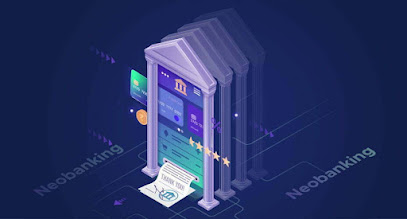The Pros and Cons of Credit Cards
You know that thing you start using when your dad stops giving you pocket money?
Yup, today we’re talking all about credit cards.
First, let’s start with the basics.
What is a Credit Card?
A credit card allows you to borrow money from a bank to make purchases - whether it’s dining at your favourite restaurant or booking an international trip. The bank gives you a credit limit based on your monthly income, to make sure you’ll be able to repay the borrowed money on time.
Credit limit enhancement can be requested and depends on various factors, like your credit history, credit score and income.
Smart use of credit cards is a necessary habit to cultivate for your credit and financial health. Using a credit card irresponsibly can lead to endless credit card debt traps. Therefore, being aware how to use this tool efficiently is crucial. So let’s deep dive into some of the pros and cons to consider before incorporating credit cards into your financial plan.
#1 - It helps build a good CIBIL Score
Imagine this - in a couple of years you probably would want to take up a home loan. When you approach the bank for a loan, they’ll check your CIBIL score which is a historical record of your creditworthiness - In other words, it’s how capable you are of repaying your debt. If you’ve never taken a loan before, the bank has no historical information to go by - but if you slowly start making purchases with your credit card and pay back in time, then you can start to build a good CIBIL score which will make it far easier for you to get any loan you want in the future.
#2 - If used smartly, you can get an interest free loan
When you use a credit card, the bank offers you a grace period of up to 50 days to pay back your credit card spends.
So, for example, if your credit card bill is generated on 5th October, you have 20 days to pay it back. In this case, your credit card bill payment is due on the 25th of October.
Let’s say you purchase a Camera on 6th September using a credit card. Assuming you clear your credit card bill payment on time, you just bagged yourself an interest-free loan of 50 days!
When you purchase something using a debit card, the money is instantly deducted from your bank account but when you make a purchase using a credit card, the money would be sitting in your savings account up to 50 days fetching you interest - so it’s a true win-win situation!
#3 - You can get credit card reward points and cashback
With cashback credit cards, you get a fixed percentage of the amount you’ve spent every time you swipe it. This usually applies to select spending categories, such as dining and entertainment.
You can also get reward points when purchasing using a credit card that can be redeemed against products or vouchers such as travel miles, merchandise, gift cards, etc. These incentives are great, but be sure to choose a reward program that aligns with your interests and goals.
Now, while there are some serious pros to owning a credit card, swiping it mindlessly can land you into a lot of trouble.
Let’s look at some of the flipsides of having a credit card:
#1 - Tendency to overspend and get into a credit card debt trap
One of the key drawbacks with credit cards, is the temptation to spend beyond your capacity. If you make the mistake of viewing your credit card as a supplemental income and start spending based on your wants instead of needs, then you will land up in an endless credit card debt trap. And from there, it’s likely you’ll find yourself unable to make the monthly payments which will lead you to start making only the minimum payment, placing you in a vicious and dangerous cycle.
#2 - High-interest rates
Interest on credit card debt is one of the most expensive types of debts. You would be charged 3 - 4% per month on your credit card bill that remains unpaid after the credit-free period, which amounts to 30 to 50% annually. This is another key reason why you should be paying your credit card balance in full.
Bottomline
As we saw, there are upsides and downsides to having a credit card. While it helps you build your credit score and makes it easier for you to get a car or home loan in the future, if used recklessly it can have a negative impact on your financial well-being and health.
So here are four key takeaways for you:
- Be smart about the way you use your credit card and be aware of the different components of your card - interest rates, penalties, reward structure, billing cycle, etc..
- Spend according to your payment capacity and not just your credit card limit
- Don’t fall into the trap of paying the minimum amount due
- Make sure you pay the full amount due in time
Source: https://wizely.in/wizeup/the-pros-and-cons-of-credit-cards

Comments
Post a Comment